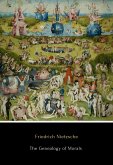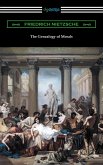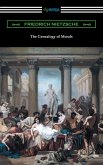"Fired with a fearless iconoclasm which surpassed the wildest dreams of contemporary free thought" - The New York Times
Friedrich Nietzsche is one of the most influential thinkers of the past 150 years and The Genealogy of Morals (1887) is his most important work on ethics and politics. The book which raises profoundly disquieting issues about the violence of both ethics and interpretation.
Elucidating and expanding on the aphorisms of Beyond Good and Evil and signalling a return to the essay form, Nietzsche considers the development of ideas of 'good' and 'evil'; explores notions of guilt and bad conscience; and discusses ascetic ideals and the purpose of the philosopher.
A polemical contribution to moral and political theory, The Genealogy of Morals offers a critique of moral values and traces the historical evolution of concepts such as guilt, conscience, responsibility, law and justice.
Friedrich Nietzsche is one of the most influential thinkers of the past 150 years and The Genealogy of Morals (1887) is his most important work on ethics and politics. The book which raises profoundly disquieting issues about the violence of both ethics and interpretation.
Elucidating and expanding on the aphorisms of Beyond Good and Evil and signalling a return to the essay form, Nietzsche considers the development of ideas of 'good' and 'evil'; explores notions of guilt and bad conscience; and discusses ascetic ideals and the purpose of the philosopher.
A polemical contribution to moral and political theory, The Genealogy of Morals offers a critique of moral values and traces the historical evolution of concepts such as guilt, conscience, responsibility, law and justice.
Dieser Download kann aus rechtlichen Gründen nur mit Rechnungsadresse in A, D ausgeliefert werden.










